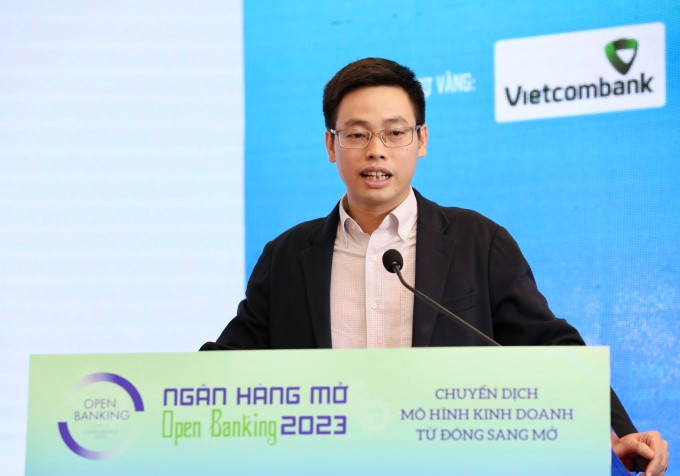Banking is becoming more and more "open", but the risk of fraud and counterfeiting is also constantly increasing, with more than 90% of fraud cases since the beginning of this year related to the banking sector.
This information was given by Mr. Tran Quang Hung, Deputy Director of Information Security Department (Ministry of Information and Communications) at the Workshop on the transformation of banking business models, organized by VnEconomy.
Citing statistics from the Ministry of Information and Communications, Mr. Hung said that in the first 11 months of this year, more than 15,900 reports of fraud were received from internet users via warning systems, of which more than 91% were related to fraud in the financial and banking sector.
The three main types of fraud are brand counterfeiting, account hijacking, and other combinations, with 24 different forms. In 2023 alone, the anti-fraud organization blocked 3,369 infringing websites and 972 phishing websites, while protecting 3.6 million users from these risks.
The challenges of ensuring information security in the internet environment, according to Mr. Hung, appear when banks become more and more "open".

Mr. Tran Quang Hung, Deputy Director of Information Security Department - Ministry of Information and Communications.
"Open" banking is understood as the act of banks sharing information and services with third parties, mainly fintech. In the open banking model, the three main entities are banks, third parties providing services, and customers using them. Through open application programming interfaces (Open APIs), banks can connect and provide banking services to third parties, not only limited to fintech but also retail businesses and service providers.
The formation of open banking, according to Deputy Governor of the State Bank Pham Tien Dung, is an inevitable trend of banking business activities in the era of the 4.0 industrial revolution. Digital transformation helps banks improve efficiency by streamlining and automating processes, improving readiness, and enhancing experience.
However, according to him, Open Banking or Open API is a new field in terms of both technical and legal factors, not only in Vietnam but also in the world. The challenges when implementing Open API are not only technological issues but also changing perceptions and changing the legal framework.
"The successful implementation of the legal framework for Open API will facilitate the Fintech community to provide new innovative services, meeting the increasing needs of customers," Mr. Dung emphasized.
Mr. Nguyen Hoang Long, Deputy General Director of the National Payment Corporation of Vietnam (Napas), said that in order for the transition from traditional banking to open banking to take place more quickly, a common set of rules is needed. In addition, the behavior regarding customer rights when there is a transaction error or the standards for products, services provided, and general operating standards also need to be studied.
"In my opinion, not only are there common standards, but also standards for products, services provided, and operational standards. For example, when a transaction error occurs, how will it be handled and how will the customer's rights be guaranteed?", Mr. Long assessed. In addition, standards from management agencies such as the State Bank, aiming to have a common operating unit or detailed technical standards, and operational standards of conduct of the parties are also directions to consider for research.
On the positive side, Napas' leaders believe that the biggest advantage is that banks, fintech companies and third parties are all enthusiastic and proactive in implementing Open Banking services.
According to VnExpress